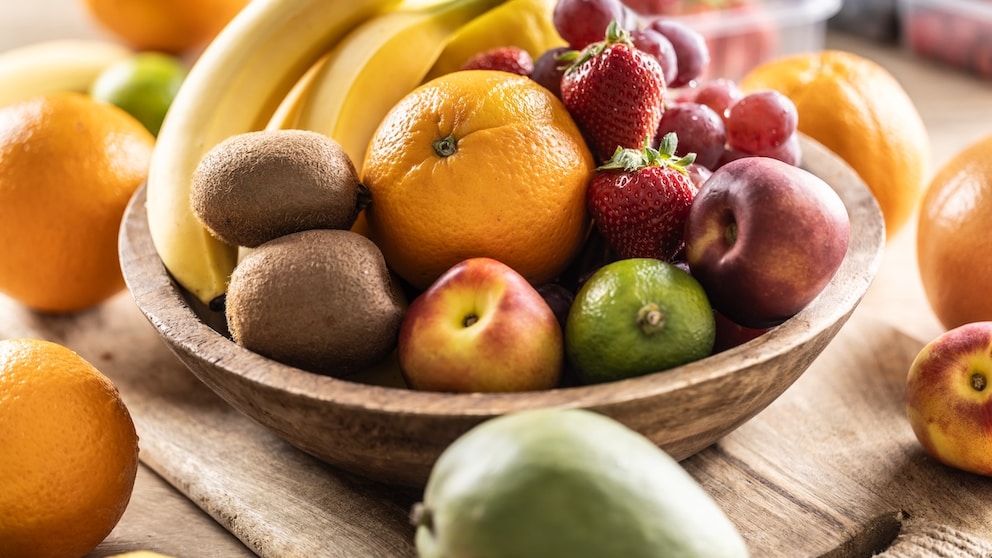March 15, 2025, 2:02 pm | Read time: 4 minutes
Depression can manifest itself in numerous symptoms — and the treatment options are also far-reaching. Even a good diet can alleviate symptoms or prevent the illness — among other things, a popular fruit is said to be able to reduce the risk of depression.
Depression is one of the most common mental illnesses worldwide and affects millions of people. Drug treatment is one way of alleviating symptoms — but it can cause severe side effects. This is why alternative, preventative strategies are increasingly being sought — and nutrition is becoming more of a focus. A new study has now identified citrus fruits as a factor that can reduce the risk of depression.
Overview
The Connection Between Gut Flora, Citrus Fruits, and Depression
It is well known that diet and healthy gut flora can influence mental health.1,2 For this reason, researchers investigated the link between citrus fruit consumption, gut flora, and the risk of depression.
But why specifically citrus fruits? The researchers settled on the so-called Faecalibacterium prausnitzii. This is a beneficial bacterium that has anti-inflammatory properties and is associated with healthy intestinal flora. Its growth could be promoted by the consumption of citrus fruits, which would reduce the risk of depression.
Analysis of Data From Around 32,000 Women
The present study was based on data from the Nurses’ Health Study II of over 32,000 women.3 Within this study, the participants answered a questionnaire at the beginning and every two years thereafter, which inquired about socio-demographic and health information — including a possible diagnosis of depression or the use of antidepressants. In addition, the frequency of food intake was surveyed every four years, allowing the researchers to get an idea of citrus fruit consumption.
However, to ensure that the study was not based purely on a survey, detailed analyses of stool and blood samples from a subgroup of 207 women were carried out to record microbial and metabolic changes. An additional independent cohort of 307 men was used to validate the results.
Citrus Fruits Influence Gut Flora and Risk of Depression
The study indicates that high consumption of citrus fruits may be beneficial for mental health. Consumption of this fruit was associated with a 22% reduction in the risk of depression. This effect remained even after factors such as BMI, physical activity, alcohol consumption, and other dietary habits were taken into account.
At the same time, it was found that citrus fruits influence the intestinal flora. The researchers identified a total of 15 bacterial species whose abundance correlated with citrus consumption — including the beneficial Faecalibacterium prausnitzii. A higher concentration of this bacterium was, in turn, associated with a lower risk of depression.
Further analysis revealed that F. prausnitzii plays an important role in the metabolic process cycle of S-adenosyl-L-methionine (SAM). SAM is a compound that is important for the synthesis of serotonin and dopamine and is involved in important metabolic processes — including in the brain. Individuals with a lower F. prausnitzii concentration showed increased expression of the monoamine oxidase A gene (MAOA), which is responsible for the breakdown of these neurotransmitters.
What Is the Significance of the Results?
The study provides initial evidence that a citrus-rich diet could have a positive effect on the intestinal flora and thus reduce the risk of depression. The bacteria Faecalibacterium prausnitzii, in particular, appears to play a key role by contributing to the regulation of serotonin and dopamine via the SAM cycle.
This could mean that targeted dietary recommendations or probiotic therapies with F. prausnitzii represent a new strategy for the prevention and treatment of depression. Since many people do not respond to classic antidepressants or do not want to expose themselves to the side effects, such alternatives could be a promising addition to other treatment options.

According to a Study Certain Intestinal Bacteria Causes Sugar Cravings

Yale Study How Friends Influence Our Gut Health

Research How Diet Can Influence the Risk of Prostate Cancer
Contextualizing the Study
Although the results are promising, the study also has limitations. As it is mainly an observational study, it cannot prove causal relationships. In addition, most of the participants came from one population group, which could limit the transferability to other countries. Furthermore, apart from one sub-analysis, the study only included data from women, which is why it is not clear whether the results could also apply to men.
Another point is that the diet was recorded by self-report, which can lead to inaccuracies. Similarly, no controlled interventions were conducted in the study to test the direct effect of citrus or F. prausnitzii on depression.
Future studies should, therefore, specifically investigate whether increased citrus intake or the administration of F. prausnitzii can actively prevent depression. Furthermore, it makes sense to work out the exact quantity and relate it to possible confounding factors.

